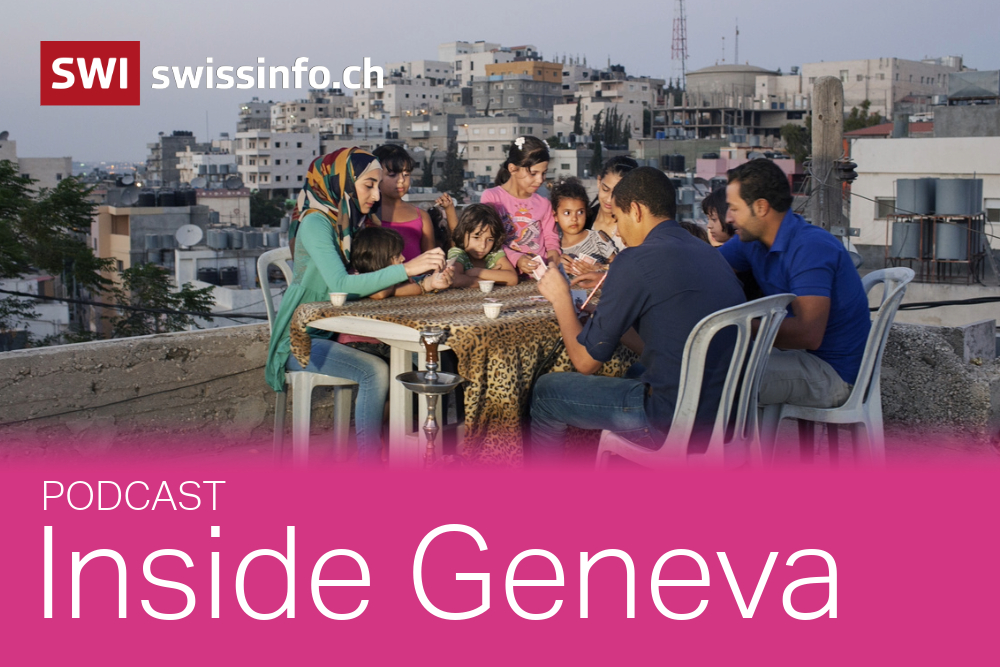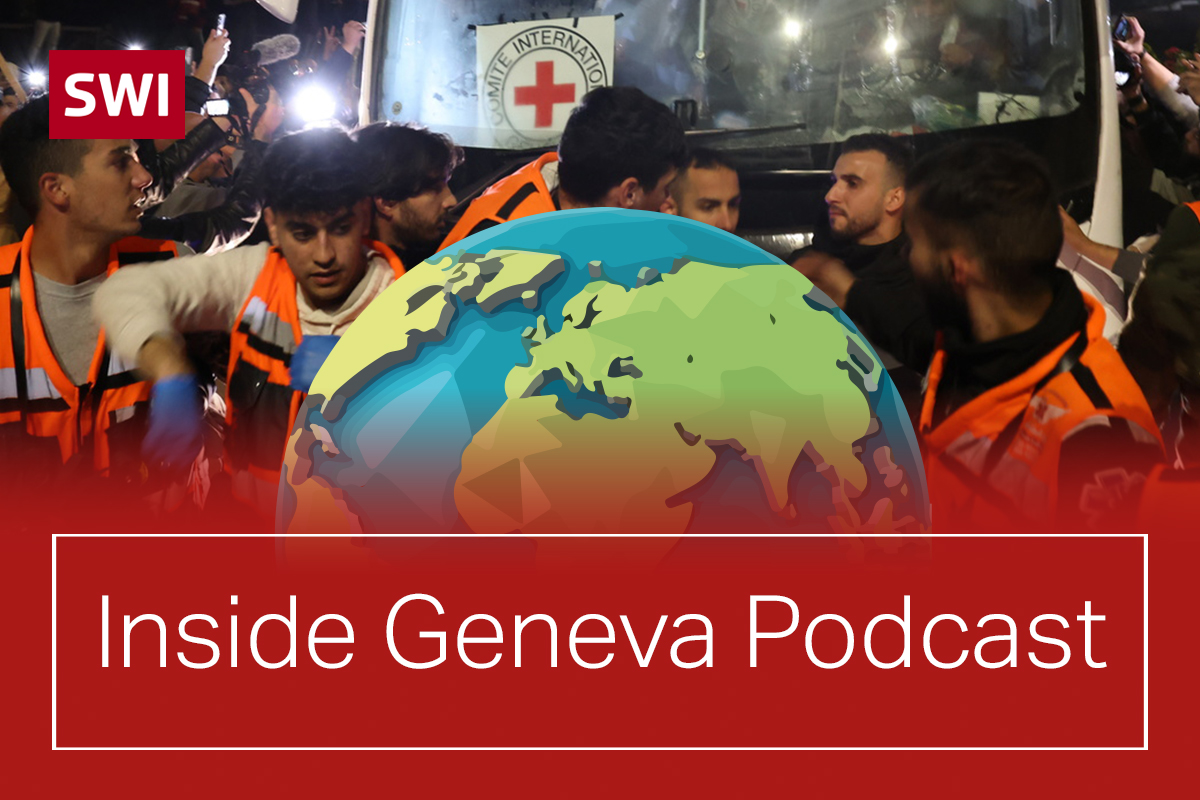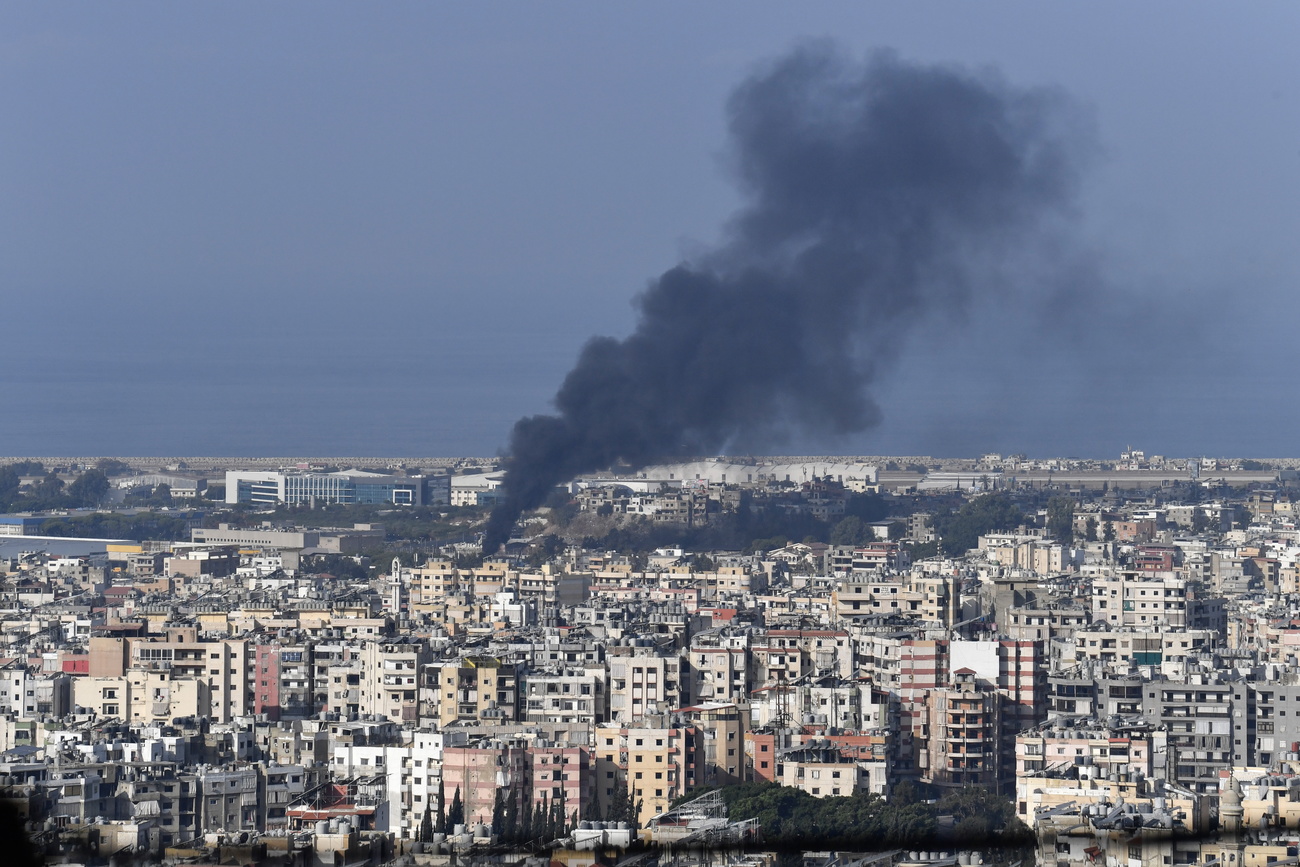Inside Geneva: life in Gaza and COP29

On Inside Geneva this week we talk to the people behind a new book about life in Gaza, told through
the words of those who live there.
“People are actually travelling in the middle of a war, in the middle of Gaza at midnight – the peak of the risk, if you like – to get somewhere where they can get a better internet so they can actually talk to us,” says Mahmoud Muna, editor of Daybreak in Gaza.
This book, edited by Mahmoud Muna and Matthew Teller with Juliette Touma and Jayyab Abusafia, is about history, culture, food, music and life.
“It’s not a football game. This is about our humanity and it’s about being able to sympathise with people wherever they are. This is not about taking sides. It’s about whether we’re human or not,” says Touma.
“This book does not give voice to the voiceless. The people of Gaza, like people everywhere, have voices. The point of this book is not to give a voice; the point of this book is to amplify the voices of the people who are not being listened to,” continues Teller.
In this episode, we also ask why human rights groups are uneasy about the upcoming UN Climate Change Conference (COP29) in Azerbaijan.
“Dozens have been arrested in the months leading up to COP29, including 16 journalists, other civil society activists, and NGO leaders. There is still time for Azerbaijan to set the record straight, and they should release them. The UN should engage with Azerbaijan to ensure that it does so,” says Giorgi Gogia from Human Rights Watch.
Tales from life in Gaza, climate change, and human rights.
Catch this and more in the latest episode of our Inside Geneva podcast.
Find out more about the ‘Inside Geneva’ podcast and our other Swiss podcasts in English here.
Subscribe below to the ‘Inside Geneva’ newsletter to make sure you never miss a new episode.

In compliance with the JTI standards
More: SWI swissinfo.ch certified by the Journalism Trust Initiative











You can find an overview of ongoing debates with our journalists here . Please join us!
If you want to start a conversation about a topic raised in this article or want to report factual errors, email us at english@swissinfo.ch.